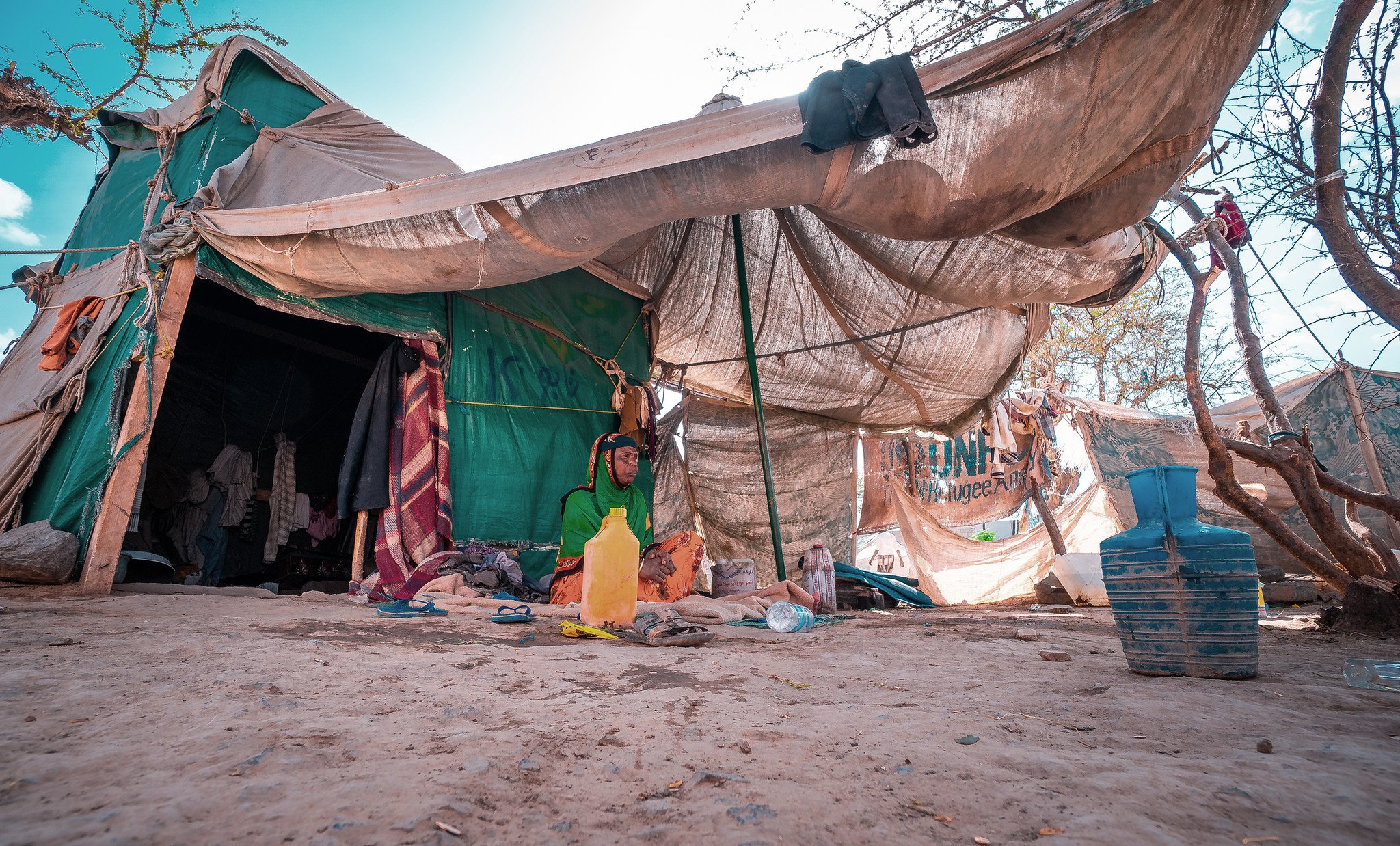On-going conflict, poverty, and disease leave mothers with few good options to survive.
Health care or food? That’s a terrible choice many mothers in Yemen are facing each day as the war grinds on and families fleeing fighting struggle to find a place to live, employment, and money for food and health care.
One 30-year-old woman told Oxfam staff that she is trying to earn income by cleaning houses and cutting and selling firewood. Her youngest son, just 13 months, is not well. He can’t walk; in fact he is too weak to even stand up on his own.
Since she only makes enough money to buy tea and bread for her four children, she is faced with some terrible decisions when one of them falls ill: “I never take them to the hospital,” she says. “I can't pay for medication.”
Mothers face impossible choices
As Mothers Day approaches here in the US, many women in Yemen would struggle to find much to celebrate. The country is in a grinding civil war: Eight out of 10 people are in need of humanitarian assistance, there is a serious cholera epidemic, and a profound financial crisis grips the country. Many are living one step away from famine due to the high cost of food.
“Mothers in Yemen have to make impossible choices all the time,” says Scott Paul, humanitarian lead for Oxfam in Washington. He says that during recent visits to the country, families recounted all sorts of terrible examples. Accessing health care is a constant concern for many: “If a child falls ill, it costs money to pay for transport to a clinic. And that’s a gamble: The clinic may be closed, or lack the required medicine,” he says.
Paul says families with young sons face terrible choices: Should they join a militia and fight? They might earn a reliable income the family needs for food and health care, but risk death.
Another option, unthinkable under most circumstances, confronts families with girls: When presented with a marriage proposal, should they accept a bride price they need for health expenses and food? One mother who borrowed money to pay to have her son’s leg amputated after a car accident, accepted a dowry for her 14-year-old daughter. “I wouldn’t have had to marry her off if I had not borrowed money,” she told Oxfam staff who visited her recently. “But I did not have another option to pay off my debt.”

How Oxfam is helping
Since 2015 Oxfam has helped three million people in Yemen. We are providing cash to families so they can buy food, and delivering clean water and improving sanitation in some of the most remote areas of the country. In addition to repairing water systems and wells, Oxfam also trucks in water where necessary. Oxfam is helping families with soap and clean water containers, and encouraging people to use good hygiene practices. All of this work is designed to help decrease the threat of cholera, which has already killed 2,760 people in Yemen. Oxfam has helped more than 430,000 people with these types of cholera prevention measures.
End the war to end the suffering
Oxfam is also encouraging all parties to the conflict to work for peace, and part of this involves ending military assistance that fuels the fighting. In the US, Congress recently passed legislation that calls for the United States to end its military involvement in the war in Yemen. President Trump then vetoed the resolution.
“The people of Yemen and the parties to the conflict are watching closely and the messages US leaders send have the power to save lives,” Paul said after the White House announced the veto. He called on the US Congress to “keep up the pressure, and not let President Trump’s cynical, transactional, and heartless brand of politics define America’s role in the world. Now Congress must act to end arms sales to all parties fighting in this brutal conflict.”
While working to cut off the weapons for the conflict, Oxfam and our partners and allies in Yemen are advocating for peace, and for women and youth to be part of the peace talks. “Women are the real peacemakers,” says Rasha Jarhum, who works for the Peace Track Initiative in Yemen. “They don’t bring any political concerns, they just want to stop the war.” In the meantime, Jarhum says, women are taking great risks to protect their families from fighting, shelling, and air strikes, while they struggle to find work to pay for the food and medical care they need to survive.
